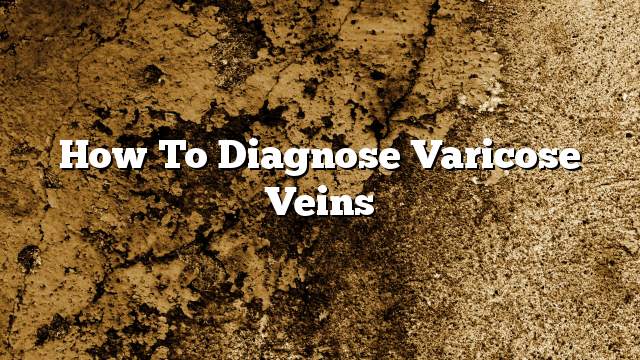How to Diagnose Varicose Veins
Varicose veins are usually known as an abnormal expansion of the veins in the scrotum inside the testicles through which blood is transferred, which extends from the abdominal cavity through the spermatic cord. When a particular disorder or disorder occurs or any pressure on these veins is caused, Varicose veins, which causes the accumulation of blood around the testes area which affects the number and movement of the sperm.
Varicose veins may cause infertility in men in most cases if not treated early and may affect varicose veins, both adults and young, and the incidence of varicose veins of 15% -20% of men.
Diagnosis of varicose veins testicles
Varicose veins are diagnosed through the clinical examination of the patient mostly or through the work of acoustic rays in order to prove the presence of inflation in the veins to be treated after that, and the varicose veins mostly testes the left testicle more than the right testicle by 90%.
Causes of Varicose Veins
- Moral causes: Varicose veins may occur because of weakness in the veins, urinary tract, and some tissues for congenital defects.
- May be in some cases of dissection of the veins of the testicles, resulting in a disorder in the return of blood, which causes varicose veins.
- It may be due to a malfunction or a problem in the valve veins causing the varicose veins.
- It may be due to prolonged standing leading to varicose veins.
Varicose veins symptoms
Usually, they do not have obvious symptoms, but in most cases varicose veins are discovered by chance when certain tests are performed. There may be many men who have varicose veins and have no knowledge of them and have the ability to have a normal child. Others may be infertile due to Varicose veins, in most cases are associated with the following symptoms:
- Feeling pain in the testicles, and when lying on the back the pain is gone.
- Note swelling and bulge in the scrotum.
- The patient may feel heavy in the testes.
